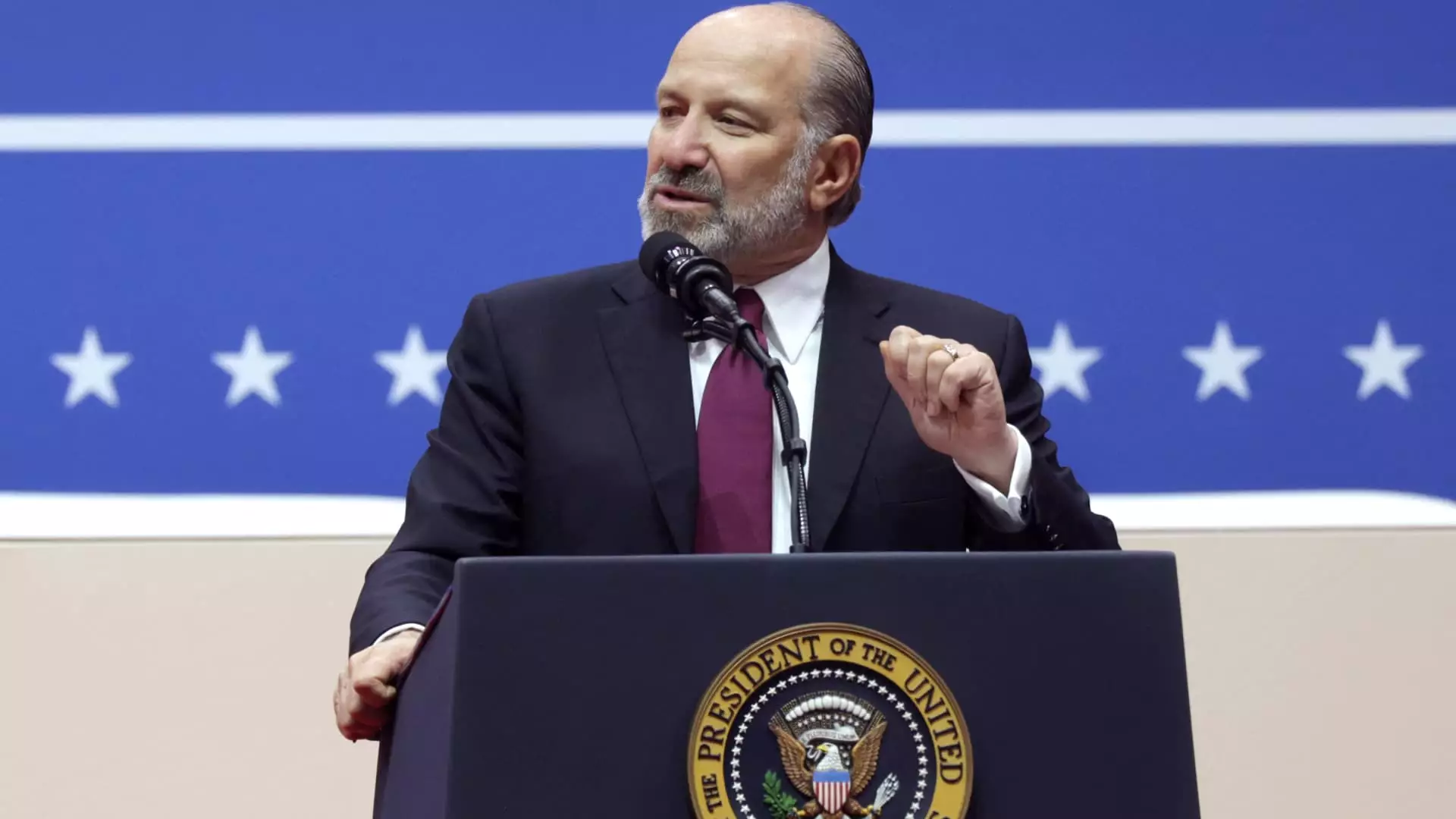In a political landscape riddled with uncertainty, one cannot help but notice the precarious dance of tariffs reshaping consumer electronics. Recently, Commerce Secretary Howard Lutnick has stirred the pot by suggesting that the temporary exemptions granted for select electronics from reciprocal tariffs may shortly vanish. The notion that devices like smartphones and laptops, which have formed an integral part of daily life, are once again under the threat of financial burden evokes an urgent scrutiny of the administration’s trade policies.
Lutnick’s statements, made during an appearance on ABC News, hint at the looming reintroduction of tariffs on vital tech products—a move suggesting an alarming departure from any semblance of stability that manufacturers and consumers had hoped for. With the specter of a 145% duty hanging over imports, the reality could mean far higher prices for everyday products, ultimately feeding into the broader issue of inflation the average consumer faces.
National Security or Economic Blunder?
As Lutnick insists that dependence on foreign-made products, especially the critical components in semiconductors, compromises national security, one must question the rationale behind such assertions. Can we genuinely consider the prioritization of manufacturing domestically as a foolproof shield against global market fluctuations? The conflation of industrial reliance with national safety is a treacherous argument that demands a more nuanced approach.
It’s paradoxical to view the push for national production as a surefire remedy while ignoring the potential collateral damage to innovation and accessibility. The negative sentiment surrounding this approach does not merely reflect economic anxiety; it corresponds with a rising skepticism about the political motivations masking behind the guise of ‘securing America.’ The ramifications of these tariffs are detrimental and far-reaching, affecting both consumers’ pockets and the technological advancements that flourish in a global market.
Political Fallout and Credibility Crisis
The political backlash is palpable, as voices like that of Senator Cory Booker resonate a clear warning—Trump’s credibility is faltering. The inconsistent nature of tariff implementation, especially when sudden reversals occur, is not just a minor inconvenience for tech companies; it breeds confusion and erodes trust on a national scale. When a government becomes synonymous with unpredictability, how can businesses make informed decisions that pave the way for growth and innovation?
The tug-of-war over tariff exemptions is representative of a broader ideological struggle within the country. It forces us to question whether we prioritize economic protectionism over the collaborative spirit that defines healthy trade relationships. A forward-looking economic policy cannot thrive on crippling tariffs; instead, it should embrace multilateralism and reciprocity as hallmarks of modern governance.
In this age of interconnectivity, we must demand a progressive trade policy that does not forsake the interests of consumers for the sake of political grandstanding. The chatter about tariffs and exemptions should not merely be about how we appear on the world stage, but about cultivating an economy where innovation and affordability are not sacrificed at the altar of perceived national interest.

Leave a Reply